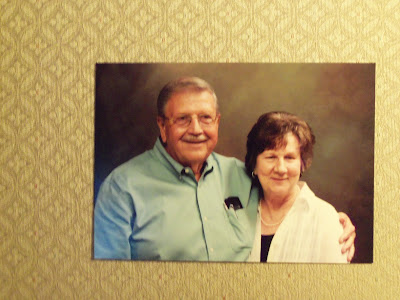PARRIS ISLAND PRIMER
Reading and writing about the
Marine Corps is a passion for me.
Without argument, my brother joining the Marine Corps when I was six
years old had lots to do with that passion.
 |
| PLATOON 76 EXCELLED ON THE RIFLE RANGE -- MANY OF US BECAME RIFLE COACHES AT QUANTICO, INSTRUCTING MARINE CORPS OFFICERS HOW TO FIRE THE M-1, BAR & COLT 45 |
I can’t say that I learned to
read by reading about the Marine Corps, but reading about the Marine Corps was
a top priority after I did learn to read.
Without argument, I learned a lot
about writing by writing about the Marine Corps. There should be an adage -- you learn to
write best by writing from your heart.
Even though I’ve come close to
heart-writing on articles over the years pertaining to Memorial Days, Veterans
Days and Marine Corps Birthdays, I’ve never really, really written about the
Marine Corps experience from the depth of my heart.
Until now.
That hesitancy has to do with
advice given me by a pastor-friend of years past, “Life comes down to three
major choices – your vocation, your partner for life, and alignment for your
after-life.”
He was as wise as indicated by the
stream of initials that trailed his name.
However, either from a sheltered background or academic naiveté, he
failed to account for guys at my juncture, who were incapable of making such
heady choices.
While family and a covey of
earlier pastors helped me along with my after-life alignment, only the Marine
Corps could have conditioned me to make sound choices in the areas of choosing
a vocation and a partner for life.
Good grades came easy for me,
even though I goofed off in high school and my first two years of college. Parris Island was pre-destined to be my first
real test.
I suspect a good number of family
and friends seriously doubted I had the heart to make it through boot camp, a
premise strongly articulated by my drill instructor, just after passing the
point of no return (Yemassee, SC).
To that point, the piece of gum I
swallowed after the DI expressed his strong disfavor, was the last piece of gum
that ever entered my mouth.
Records say I reported to Parris
Island July 7, 1955 and departed September 23, 1955, seventy-seven days
inclusively.
 |
| GRADUATION DAY @ PARRIS ISLAND, SEPT1955 FELLOW GRADUATE FROM CO-LIN, JIMMIE RODGERS BEING AWARDED, HARRY THETFORD IS NEXT |
Stated another way, for
seventy-six evenings, I thanked the Lord for another day of survival. And, wondered to myself if I had the heart to
make it one more day. And, on the
seventy-seventh evening, I thanked Him for life itself.
While “goofing off” in college
was a skill set for me, Parris Island Drill Instructors deleted that from my
persona in microseconds. Instantaneously,
I tried to do my very best in every respect of boot camp. I wanted to be the first to fall in for
formation. I’m a slow eater, but was
never, never last out of the chow hall.
I learned how and when to respond
vociferously, and how and when to remain very quiet. I tried to jump higher, run faster, last
longer, shoot better, memorize faster, and spit-shine glossier than all
others.
I learned this was a lost cause
unless I helped all others jump, run, last, shoot, memorize and spit-shine as
well as I could.
I could say it was OK for sand
fleas to chew on me, since that meant buddies standing nearby were being spared. I could, but that would be a huge lie.
If the Marine Corps wanted to
teach me something, I wanted to learn it.
Again, a moot point unless all others learned it as well.
Did this make me the best man of
the sixty-nine graduating Recruits in our platoon? Far from it!
Sixty-eight others had the same aspirations. Most of these aspirations were drill
instructor-inspired, but a covert group always took up any slack.
That “covert group” persona has
probably been around since 1ST LT Pressley O’Bannon put the initial
unit of Marines together in 1775. It
exemplifies the Marine Corps.
After boot camp, we learned the
Marine Corps already had a term for this covert group mentality that no Marine
should be left behind. They called it,
“Esprit de Corps”!
In today’s vernacular, the Marine
Corps left me with an attitude. While I
never had an eagle, globe and anchor tattooed on my arm, the same three items
tattooed on my heart are holding up quite well.
It isn’t fair to say that
everything I’ve learned, I learned from the Marine Corps. There is no question that everything I’ve
learned has been brought into sharper focus by my Marine Corps experience.
This isn’t a puff piece for the
Corps, and no apologies are offered for those from other services with equal or
better experiences – just words from one Marine’s heart – well over a half century after the fact.
Every Marine has a story. I recently golfed with a retired Army veteran
with thirty years’ service. He noticed
my surprise to see his car loaded out with Marine Corps decals and
paraphernalia.
He explained, “I spent a hitch in
the Marines before I went Army!” On the
way home that afternoon, I knew it was time to write my Marine Corps heart
article.
God bless America, and God
bless the USMC, it’s never been a greater time to be “One of the Few!”

























